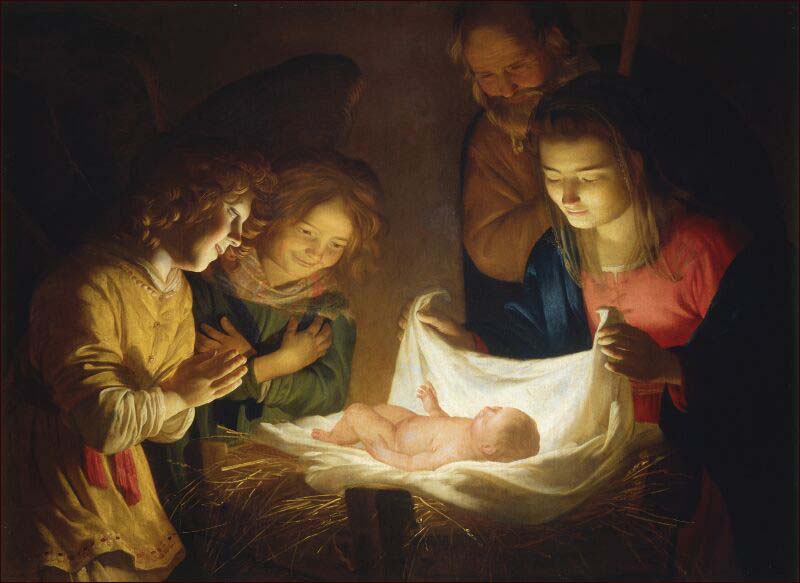
''Misit verbum suum, et sanavit eos, et eripuit eos de interitionibus eorum.'' (Ps 107:20)
There is much one can write concerning this sacred time in our liturgical calender, yet I was unable to fix my mind on anything in particular to sketch a meditation upon. No clear idea entered my mind until this afternoon, when I came across a passage from an Eastern Orthodox theologian, Vladimir Lossky, and this opened up a series of thoughts in my mind, so I have decided to type some out, more or less at random, take whatever is good in it and ascribe honour to God, Who is blessed forever.
In the English language, it is very unfortunate that our term 'salvation' denotes a negative concept. One may often imply 'salvation from something', or have some idea of this. Unlike German (das Heil) or the Latin tongue (salus), English will force the unreflective to adopt this notion. In those other two languages, the term 'salvation' includes a 'wholeness', or 'health', a completion. In our case, it is salvation from hell, we preach.
Our salvation has to consist of more than a Descent of the Logos so that man who be prevented from degrading himself more fully, irrevocably (although, this certainly plays some role). In fact, the katabasis of the Second Person of the most merciful Trinity, enable mans to enter into the divine life of trinitarian love by grace and participation. The kenosis of Jesus our Lord, leads to our fullness. As the Servant of God, Archbishop Sheen used to say, while we came to live, He came to die. This was the purpose of the Incarnation so that we may be absolved from sin, and enter into our Master's joy.
By the assumption of the Sacred Humanity, elected from all eternity by a gratuitous decree of mercy, through and only through the Holy Virgin, the process of man's healing and restoration commences. As Saint Irenaeus wonderful describes, Christ, the Second and true Adam, recapitulates the life of the first, binding up the bounds through His humble obedience to the Father's decree, where Adam strayed.
This salvation is applied to our souls through the laver of regeneration, and the continual renewal of the inner man by the Paraclete, so that we may come to the lot of the saints in light. God in no way simply wishes to declare us just in His Sight, without us truly becoming conformed to the likeness of His Son through Whom we are adopted. Through humility and piety, the soul is stregthened by His graces and blessings, while the Holy Trinity dwells within man freely.
Humility shown, par excellence, in the Incarnation of God, was a favourite theme in the preaching and writings of Saint Augustine of Hippo, and through our frequent meditations on the Descent, let us practice this with ever-increasing ferver. No man can enter heaven unless he be cleansed of all arrogance, which brought the Light Bearer low. By recognising the need for a Saviour, this is the first step.
What we have in the Nativity Scene, is not merely a sentimental image, which allows us to experience a glow within our breast, rather one for which we must have an unbounded gratitude. God although merciful, was in no way, obligated to send His Son to die on behalf of sinful men. The clay that rose up against its Potter, deserved nothing more than to be tossed aside in His just anger. Yet He chose to do so for us.
No comments:
Post a Comment